Ljubljana related
Maribor twice came back from behind against a stubborn Domžale side to record an entertaining 4-3 victory at Ljudski vrt Stadium on Saturday evening, joining Mura and Koper in a three-way tie at the summit of the Prva Liga standings.
Following a midweek 3-1 win over Aluminij, Maribor knew a win over struggling Domžale – who were winless in their last four encounters – would propel them to the top of the table, yet they found themselves a goal down just 11 minutes in as Dario Kolobaric headed the visitors in front, holding onto their 1-0 lead at the break.
Maribor hit back just three minutes into the second half through Rudi Požeg, before doubling their lead just six minutes later following Jan Mlakar’s quick turn and shot on goal.
Domžale refused to give up, equalising through Toni Mujan’s cross-cum-shot before regaining the lead through Sven Karič after Maribor failed to clear away the danger from a corner.
The goalmouth action was far from over as the Purples rallied, levelling matters as the ball fell kindly to Špiro Peričić who applied the finishing touch. And five minutes from time, Maribor completed the comeback as Bla Vrhovec’s defence-splitting pass was tucked away by Aljoša Matko to make it 4-3, sending the home side into rapturous celebrations.
The goal-frenzy, with seven different players registering their names on the scoresheet, ended with Maribor taking maximum points, lifting them to top spot on the log via goal difference.
Joining them at the summit with 19 points from 11 matches is NS Mura, who failed to remain in the outright lead following a disappointing goalless draw with Tabor Sežana, as well as Koper, who made it three victories in a row following a surprise 2-1 victory over Olimpija at Stožice Stadium in Ljubljana.
Elsewhere, defending champions Celje returned to winning ways with a comprehensive 4-0 win over Aluminij to climb up to sixth in the standings, while Gorica and Bravo played out a goalless draw in Saturday’s late game.
Domestic league action takes a break for the next two weeks owing to the FIFA international break, which sees Slovenia host Azerbaijan in a friendly encounter on Wednesday, 11 November ahead of two UEFA Nations League clashes against Kosovo and Greece. Slovenia currently top League C Group 3 with 10 points from their four matches played so far in the competition.
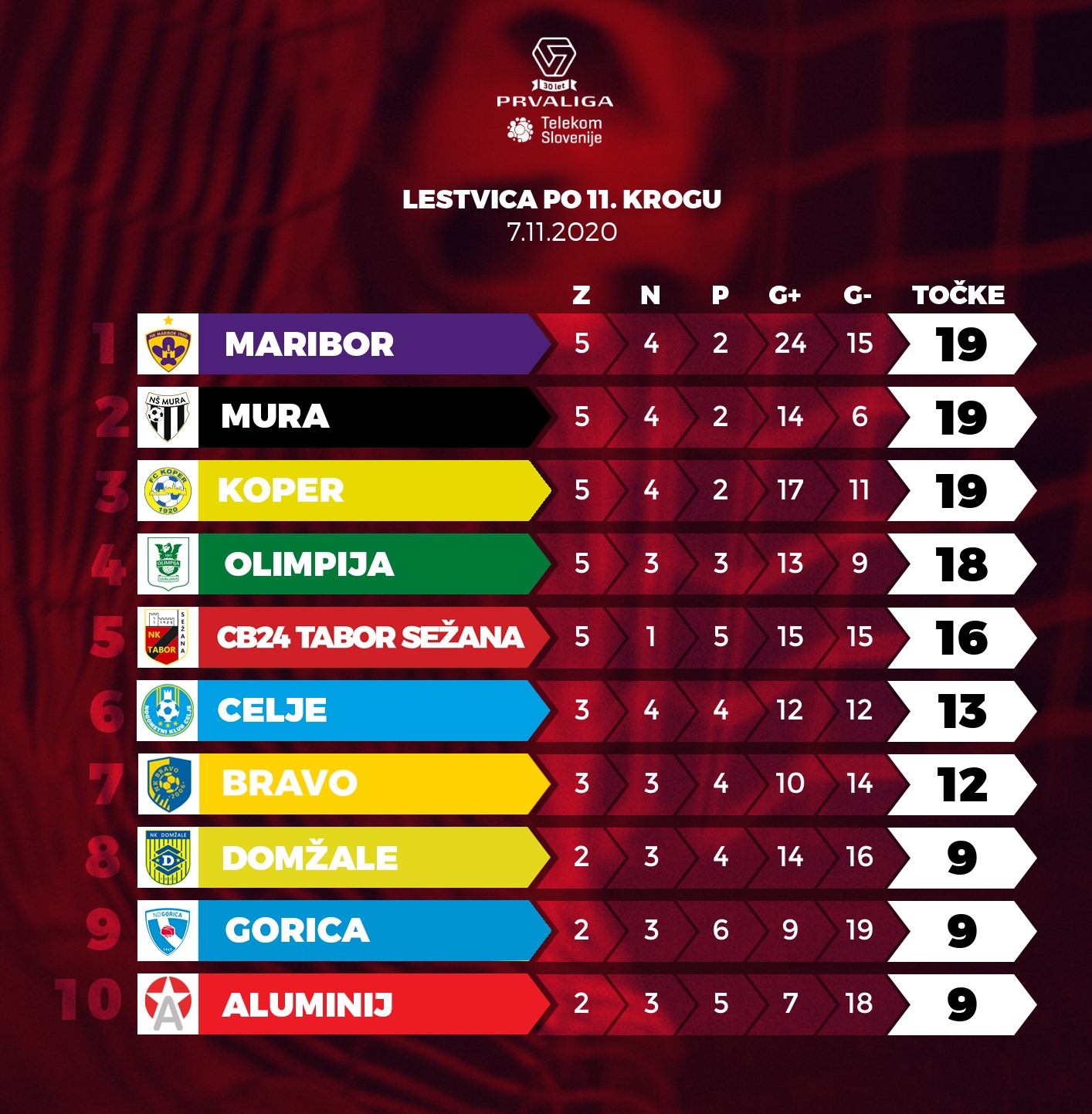
League table: Facebook/ Prva liga Telekom Slovenije
It’s been a strange summer, for obvious reasons, with many events being cancelled. Three of the larger ones for the season are still on, though – the Ljubljana Festival (which continues until 30 August), Piran and Koper’s Tartini Festival (until 11 September), and Maribor’s Lent, which started yesterday and is on until 29 August.
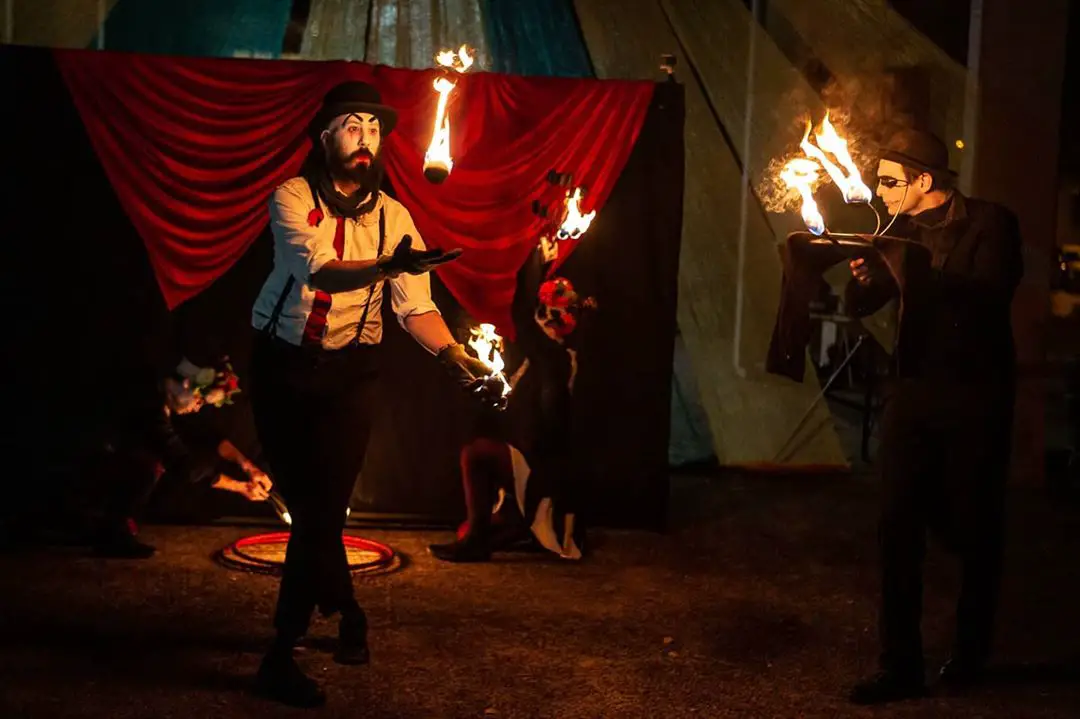
Ana Desetnica will be there. Photo: Festival Lent
Lent – which takes its name from the location, not the time before Easter, and thus no fasting required – offers a packed programme of folklore and dance, music, theatre, film, art, exhibitions, children’s activities, sport and more. There really is a lot going on in Maribor the next 10 days, so if curious – and if there’s any chance you’ll be in Maribor this month then you should be curious, because who knows when you’ll next see a live show again? – take a look at the website and dig around. It’s all in Slovenian, but plays well with Google Translate.
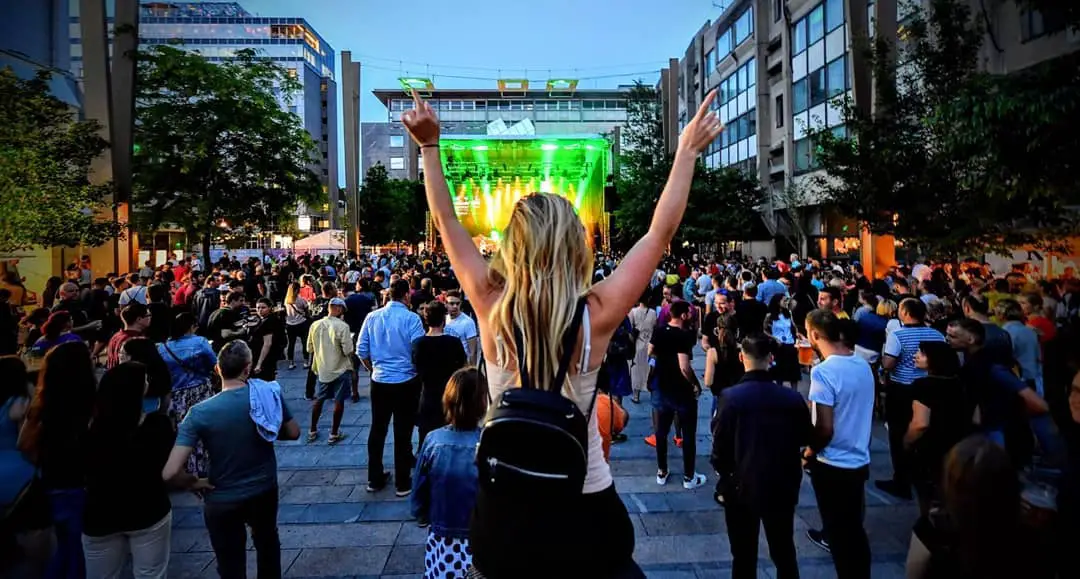
Photo: Festival Lent
Look at the music alone and you’ll see a truly eclectic line-up that includes big local names such as Siddharta, Terra Pop, Pero Lovšin, the Wacky Blues Professors (Prismojeni profesorji bluesa), Igor Matkovič, Koala Voice, MRFY, Vlado Kreslin, Dan D, Lačni Franz and Elvis Jackson, in addition to a reduced selection of foreign guests, due to the covid restrictions, making this year's Lent an especially Slovenian celebration culture
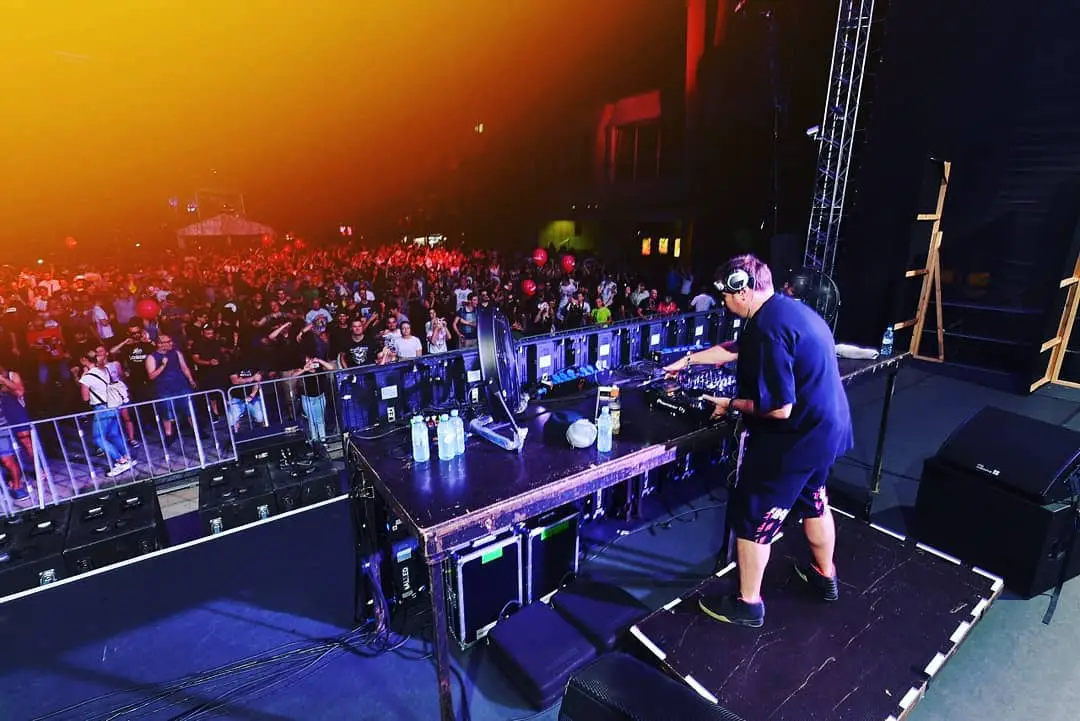
DJ Umek, in 2019. Photo: Festival Lent
The full programme – for music, theatre, art, and so on – can be found here. Take a look, click around, and find another good reason to visit Maribor this summer.
STA, 10 August 2020 - Three men from the Maribor area were arrested last week after blackmailing a man with recordings obtained illegally from his home security system, with the police advising the public to be cautious about the security settings of video systems in their homes. "You may find video footage from your home online pretty soon."
A week ago, the victim reported to the police that he had received a letter telling him that defamatory facts would be revealed unless he paid EUR 30,000, Maribor police spokesman Miran Šadl said.
A handover was agreed during which the police arrested a 21-year-old man. The investigators determined that he had been aided by a 22-year-old and a 24-year-old.
They did not acquire the footage from the video system directly but came across it online. The footage was acquired by a third party, who "posted it on a website with such content", the police said.
It warned video surveillance system owners to be cautious when installing such systems, above all they should set secure passwords.
Special caution is required for wireless cameras and systems connected to a network or such that upload footage to a cloud, with the police recommending that the latter be disabled for cameras in private homes.
The police said that the victim was not a public persona, nonetheless the video footage could have damaged his good name and reputation.
The threesome was apprehended and released after the prosecution said there was no grounds to hold them. They will, however, be charged with blackmail, which carries a prison sentence of between a year and seven years.
The 22-year-old was also found with banned sports performance enhancers and the M81 cannon cracker and may face a year to ten in prison for the former and between a year and five years for the latter.
STA, 5 June 2020 - After Slovenia banned a concert by Marko Perković - Thompson, a Croatian nationalist singer, three years ago, recently a second attempt was made at organising it but the Maribor Administrative Unit again blocked the initiative. However, this time the Interior Ministry annulled the decision in a move that has caused quite a stir.
The ministry told the STA the decision to grant the appeal against what is the second banning of the concert had been made in line with a ruling of the Administrative Court and valid legislation.
The Maribor Administrative Unit was the first to block the controversial concert in 2017 as well, but more than two years after the concert was scheduled to take place the Maribor Administrative Court lifted the ban last June.
Marko Perković participated in the Croatian War of Independence (1991–95), during which he started his career with the patriotic song "Bojna Čavoglave".
Although the Maribor Administrative Unit stands behind the decision it made on 4 May, the procedure to ban the concert initiated by police is now stopped. According to the paper, the singer can now either stage the concert or claim compensation from Slovenia.
The head of the Maribor Administrative Unit, Srečko Đurov, told the STA today he believed the decision to ban the concert was correct but he was obligated to respect the ministry's decision.
"Promoting the Ustaše movement at a public event is a severe violation of human dignity. This is especially so in the case of Maribor, which was subject to horrible terror during the Second World War."
He said the administrative unit had granted the police's request to ban the concert "to protect the fundamentals of our constitutional order, which is the rule of law, human dignity and pluralism".
Thompson's speeches at his concerts are a "direct attack on the fundamental values of the European Convention on Human Rights and the Slovenian Constitution", Đurov said.
The Maribor Administrative Unit did not ban the planned concert because of the views and ideology of the organiser and signer, as the organiser claims, but because promoting the Ustaše movement and inciting hatred is not allowed at a public event in Slovenia, he stressed.
The concert organiser, Milan Trol, who initially wanted to organise the concert on 20 May 2017, told Radio Maribor that the concert would be carried out. "You will be notified of all the details when the time is right," he added.
The ministry's decision triggered a wave of criticism on Twitter, mainly among opposition parties but also from the head of the coalition Modern Centre Party (SMC), Zdravko Počivalšek.
"Thompson's concert, which comes with promoting contempt of other nationalities, is not and must not be welcome in Slovenia. Any kind of incitement of national, racial, religious or any other intolerance is an insult to our values and a violation of our Constitution," he tweeted.
Marjan Šarec of the namesake LMŠ party said the government was "rehabilitating the Ustaše movement" and that the annulment of the concert ban was a "slap in the face to all those who suffered and bled including because of collaboration".
"The decision tramples on human dignity and gives recognition to the Ustaše regime. The fact that Thompson supports the Ustahsa is not a problem. The problem is that our government does," said the interim head of the Social Democrats (SD), Tanja Fajon.
Matej T. Vatovec of the Left said that while many countries were rejecting Thompson and banning his concerts, the Janez Janša government was doing everything for him to have a concert in Slovenia and "thus open the door to promotion of the Ustaše movement and Fascism".
President Borut Pahor's office also responded. "Based on the many questions the president has been receiving regarding a Thompson concert in Slovenia, we highlight that the president's view is the same as in 2017: It is not a matter of politics to allow or ban concerts but a matter of the organiser or relevant institutions to make sure the event is organised in line with the law and that public law and order is protected," the office said on Twitter.
"The president is not familiar with Marko Perković Thompson's music. However, he is familiar with his political views and he rejects them," the office added.
Parliamentary Speaker Igor Zorčič said such a concert had no place in Slovenia. He noted though that media had reported that the Administrative Court had lifted the ban on the first concert. "If that is the reason for the ministry's decision, then I will understand it, although I absolutely do not support this concert," he told reporters.
Thompson - his nickname he took from the gun he had used in Croatia's war of independence - has often been accused of extremist nationalist views due to some of the lyrics of his songs and due to the fact that youth wear Ustaše and Nazi symbols at his concerts.
STA, 9 May 2020 - Russian Ambassador Timur Rafailovic Eyvazov laid a wreath at the site of a former Nazi prison camp in Maribor on Saturday in memory of several thousand Russian prisoners of war who died there. He said keeping the memory alive was important to prevent history repeating again.
The building of the former Stalag XVIII D camp is being turned into a museum after the Maribor municipality has bought the plot from a private owner, while Russia is to provide the funding to create a museum.
Additional exhibition material was put on show on the occasion of Victory Day to bear witness to the developments there during Second World War.
The exhibition is expected to open to broader public in the autumn, which would make it a real museum after it has so far been open only on special occasions and mostly only to professionals.
#VictoryDay #ДеньПобеды
— Russian Emb/Slovenia (@AmbrusSlo) May 9, 2020
Veleposlanik Rusije Timur Ejvazov, župan mestne občine Murska Sobota, vodstvo ZZB NOB in društva Slovenija-Rusija so položili vence pred spomenikom sovjetskemu vojaku in jugoslovanskemu partizanu v Murski Soboti. Slovesnosti so potekali tudi v Mariboru pic.twitter.com/Mn5d3oSsUs
Ambassador Eyvazov, who took office in Slovenia in January, reiterated his country's commitment to the project. "We still don't know how many people died here, but the figure must have been very high. The facility is exceptional because it has remained untouched," he told reporters.
"The project is exceptionally important in particular for the younger generations to learn the truth about the horrendous crimes that were being committed here 75 years ago. It's important to make sure such horrific history will not be repeated again." said the ambassador.
During WWII, the complex of a defunct customs warehouse in the Maribor Melje borough was part of a German Nazi prison camp. Between September 1941 and March 1942, it held several thousand Russian POWs in extremely inhumane conditions and most of them died there from exhaustion, starvation or disease.
The search through various European archives has so far yielded close to 3,000 names of Soviets who died in the camp. "We want to press on to find all 5,000 names of the Soviet POWs killed," said Janez Ujčič, director of the International Centre for WWII Research in Maribor, which manages the museum.
The plan for the museum was unveiled in 2014 during a visit by Russian Foreign Minister Sergey Lavrov but it has so far hosted only dedicated conferences. A one-storey hall, the complex does not have basic infrastructure such as electricity or toilets, but this should be tackled by autumn.
"Today's Victory Day ceremony represents the first step to museum activity in this former camp. With the present exhibition we've launched a lasting renovation of this complex," said Ujčič, adding that the museum had sparked a lot of interest in the international expert community as well as in Russian media.
The three-part exhibition chronicles Maribor's resistance in 1941, the city's German occupation, the tragedy of the Russian POWs in the camp and the joint struggle of the Rad Army and Partisan resistance movement in the former Yugoslavia.
STA, 4 February 2020 - The University of Maribor and its Medical Centre (UKC) have teamed up with partners from abroad to launch an EU-funded project to provide an AI-assisted post-treatment support to cancer patients.
The project Persist is the first such large European project at UKC Maribor and the first such cooperation between the centre and university.
"This is the first time that we've pooled the expertise that is abundant in Maribor in such a way," UKC Maribor director general Vojko Flis told reporters on Tuesday.
Technological solutions to build an innovative system to support doctors in post-cancer handling of patients are being developed by the Maribor Faculty of Electrical Engineering and Computer Science.
As part of a pilot project carried out by UKC Maribor and three other European hospitals, the Maribor hospital will monitor 40 patients cured of breast and colon cancer with the help of a smart watch.
The watch also will allow patients to communicate with psychologists and will record data on their state of health as well as their moods and how they feel through the way they communicate in text and pictures.
Based on the data collected, new models of health data analyses will be developed which will serve in further handling of patients after cancer treatment.
The partners will also develop a mass data platform that will bring together both components and combine them with digital recordings on patients used in hospitals.
Involving 13 institutions from ten countries, the project Persist will run until February 2023. Valued at over EUR 5 million, it is fully funded by the EU under the Horizon 2020 programme.
EUR 700,000 of the sum is allocated to partners from Slovenia, including the Maribor Faculty of Arts, which provides support in the field of psychology.
Oncologists hope the project will allow them to better monitor their patients so as to help them better to rehabilitate.
"We can treat cancer. Once the patient ends treatment, they must be returned into society. I believe we can get important data there how to help on the path of that rehabilitation," said Maja Ravnik, the head of the UKC Maribor oncology department.
In Slovenia, cancer has become the leading cause of death in men and the second leading cause of death in women, show official data released on World Cancer Day.
As many as 15,072 people got newly diagnosed with cancer in 2016, which means a new cancer diagnosis every 35 minutes.
Where did you live before Slovenia, and what brought you here?
We were living in Istanbul, Turkey. Last year we came to Ljubljana for a vacation and we loved the country. Actually, we always had an idea of moving abroad. After this trip, we decided to move to Slovenia, because when you compare it with İstanbul here is so green, so peaceful, and there’s no traffic. If you are a tourist, İstanbul is a beautiful city but if you are living and working there it’s too hard to live. Such as, everyday I have to go to work and it takes two hours going and two hours coming back. It is really exhausting. So all these reasons brought us to Slovenia.
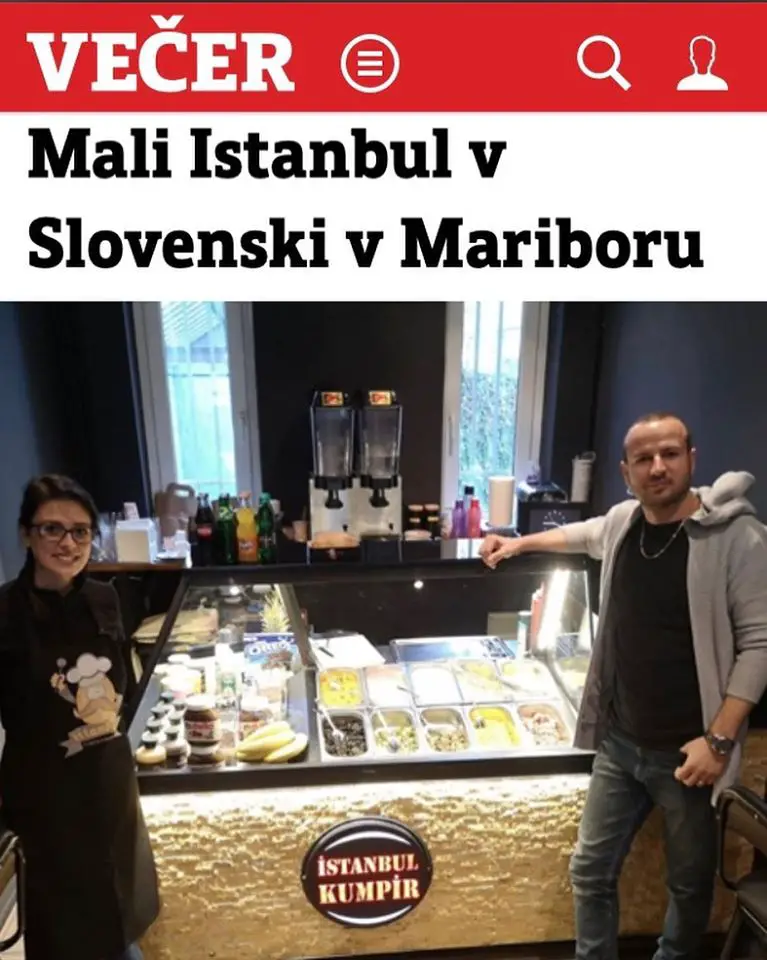
How was the process of moving here?
After our trip, we talked with some consulting firms about the investment conditions to get a visa. We evaluated these and decided they suited us. Then we started to look at property to buy in Slovenia, we used bolha.com and nepremicnine.net, but we could not find anything and so we came to Slovenia once more. We visited Ljubljana, Portorož, Koper and Maribor. That’s how we found our store in Maribor.
Overall, the experience of this was really good. We were travelling to different cities and at the same time we were looking for a place which was good for us.
However, we were told that making an investment is the best option if you want to move here, you don’t need to wait too long and can get your visa within three months. But in fact it took much more than more than three months, eight months in total, and that was hard and stressful for us.
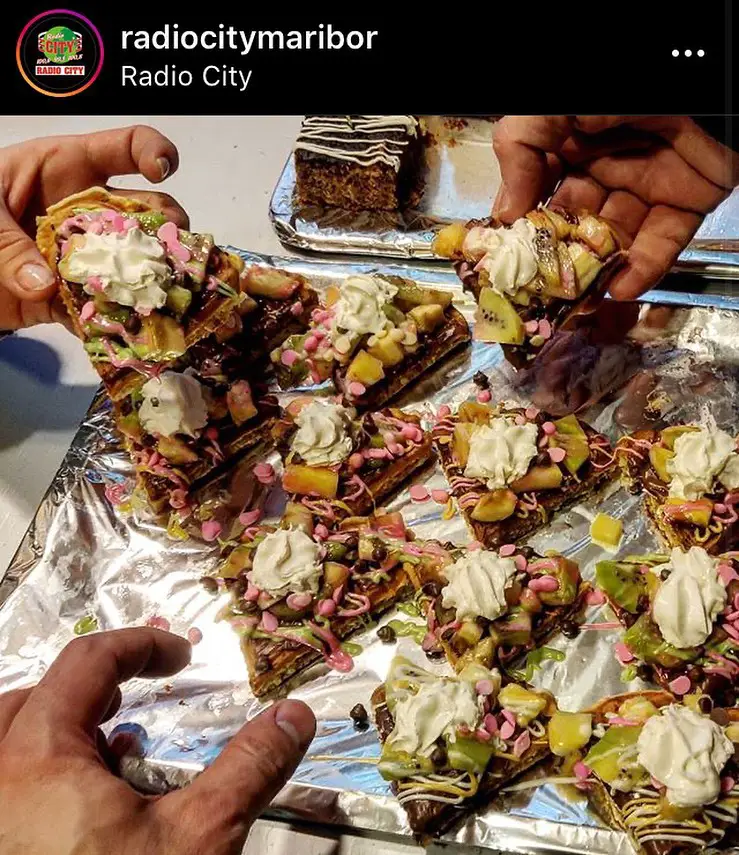
Have you started to learn Slovene?
We applied for the governments language course, but when we went we saw that they were teaching Slovene with Slovene. There is no class from English to Slovene. This is a problem for us, but we’re trying to learn at home with some online courses.
What work did you do back home?
Both of us have bachelor’s degrees and graduated from İstanbul University. After I graduated from the business administration department I worked as an auditor for four years and after that worked two years in a bank as a senior specialist in the financial reporting department. Omer, my husband, graduated in tourism management, and worked in the tourism sector. Then he took a bakery course and learned how to become a pastry chef. He had a bakery/café in İstanbul for five years before we came here.
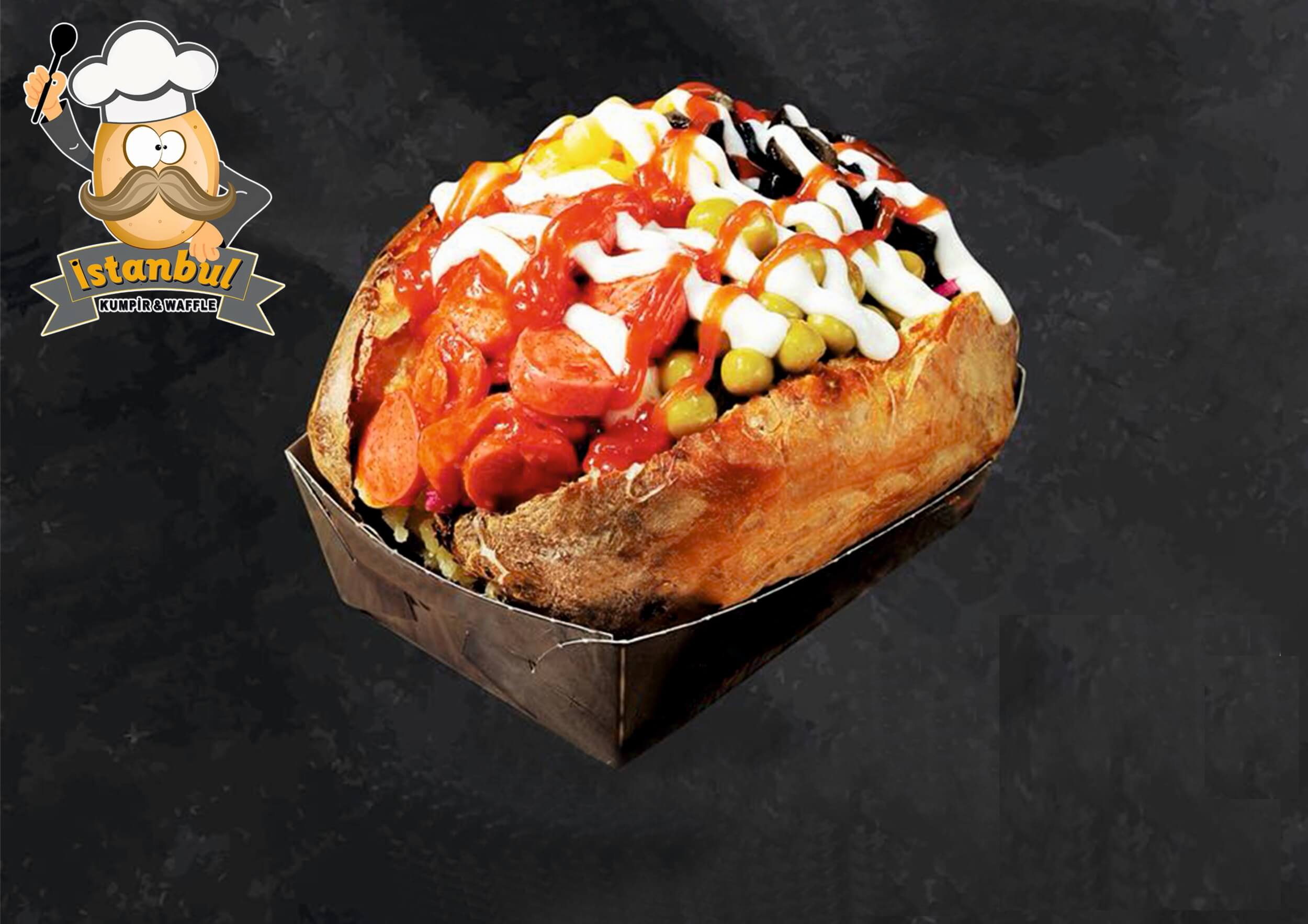
What’s your business in Maribor?
We opened our restaurant three months ago. We make large baked potato, mix it with butter and mozzarella cheese (like a puree) and put different types of salad on it. This is a special kind of Turkish street food. We also have waffles with a different toppings. And of course, we have original Turkish baklava, Turkish coffee and Turkish tea.

Where can people find out more about your work?
We have a Facebook page, Istanbul kumpir & waffle, and Instagram page istanbulkumpirandwaffle. The best thing is to come and visit us and try some Turkish street food, at Slovenska Ulica 42, 2000 Maribor.
If you’d like to share your story with our readers, please get in touch at This email address is being protected from spambots. You need JavaScript enabled to view it.
Grandpa Frost (Dedek mraz) has been around for about 70 years now, and despite the 1990s poor projections about his survival after the change in political system, is about to enter the 2020s alive and well. You can read more about this gift giving figure read here.
Below, you can see some of the early pictures from Maribor and elsewhere of Grandpa Frost (Dedek Mraz) on gift-giving visits to schools, hospitals and public halls that might be even more interesting in terms of the event’s surroundings and kids’ fashions of the day.
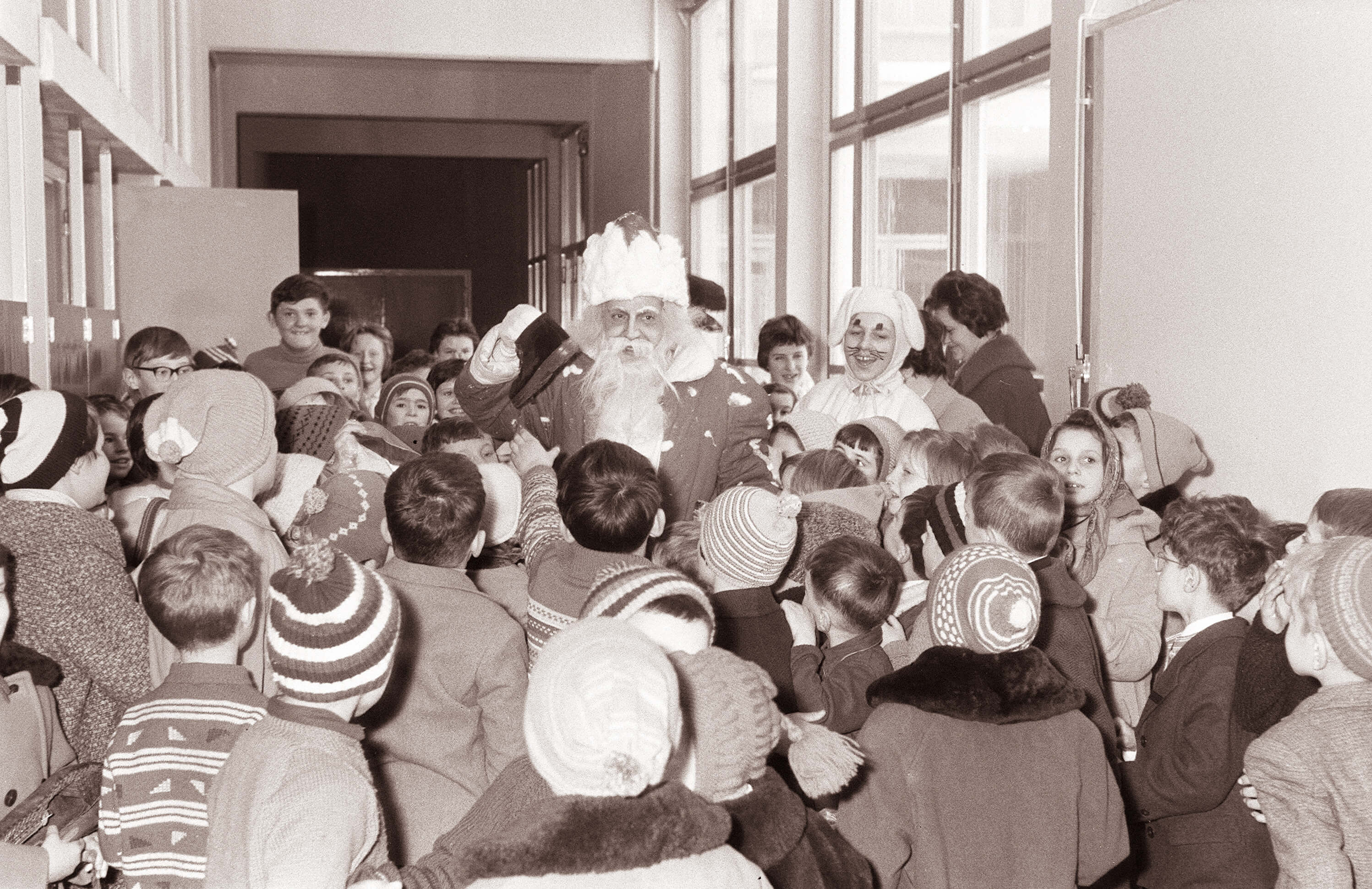
Dedek Mraz at OŠ Franc Rozman - Stane, 1961; Photo: Danilo Škofič
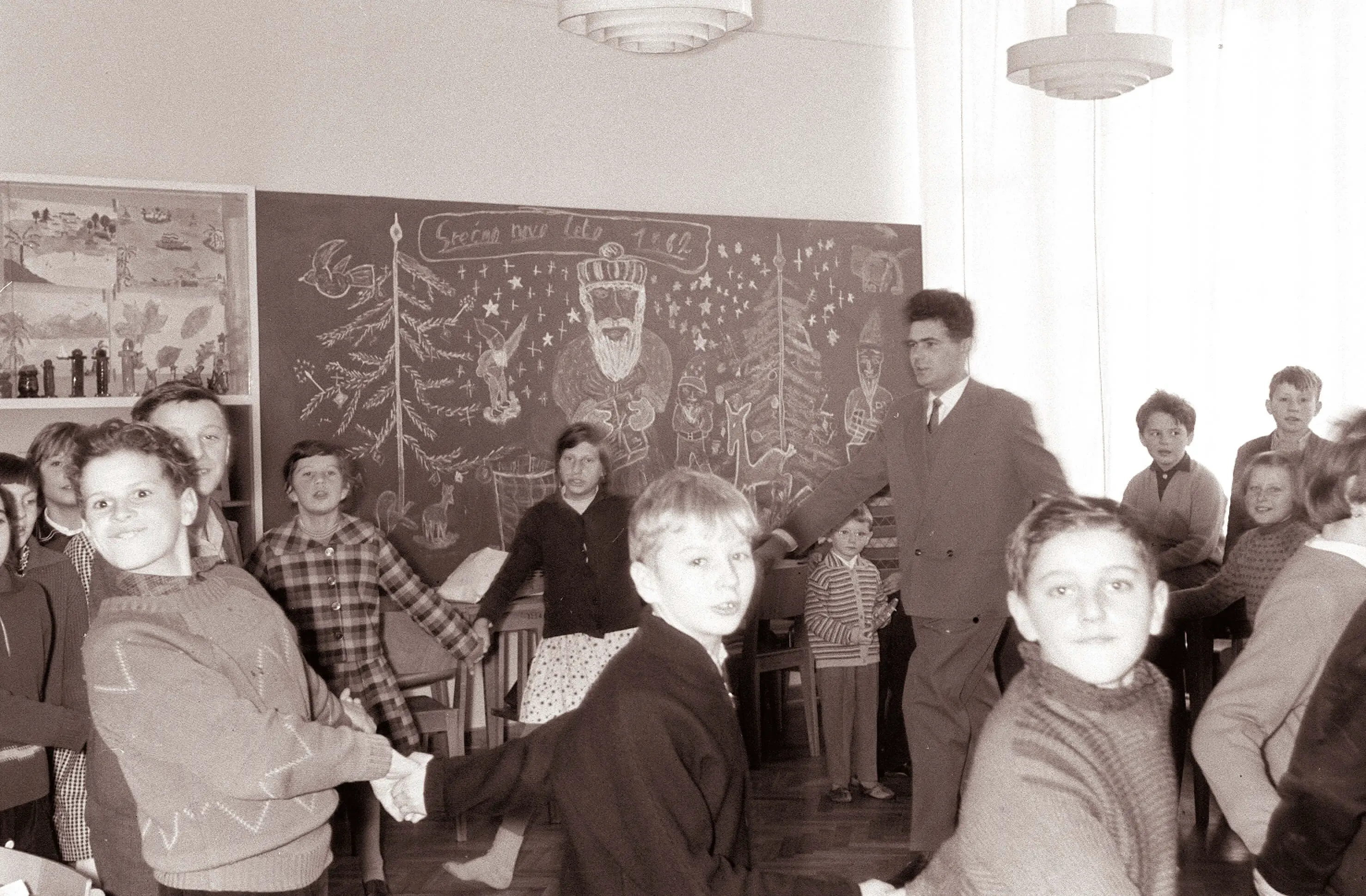
Dedek Mraz at OŠ Franc Rozman - Stane, 1961; Photo: Danilo Škofič
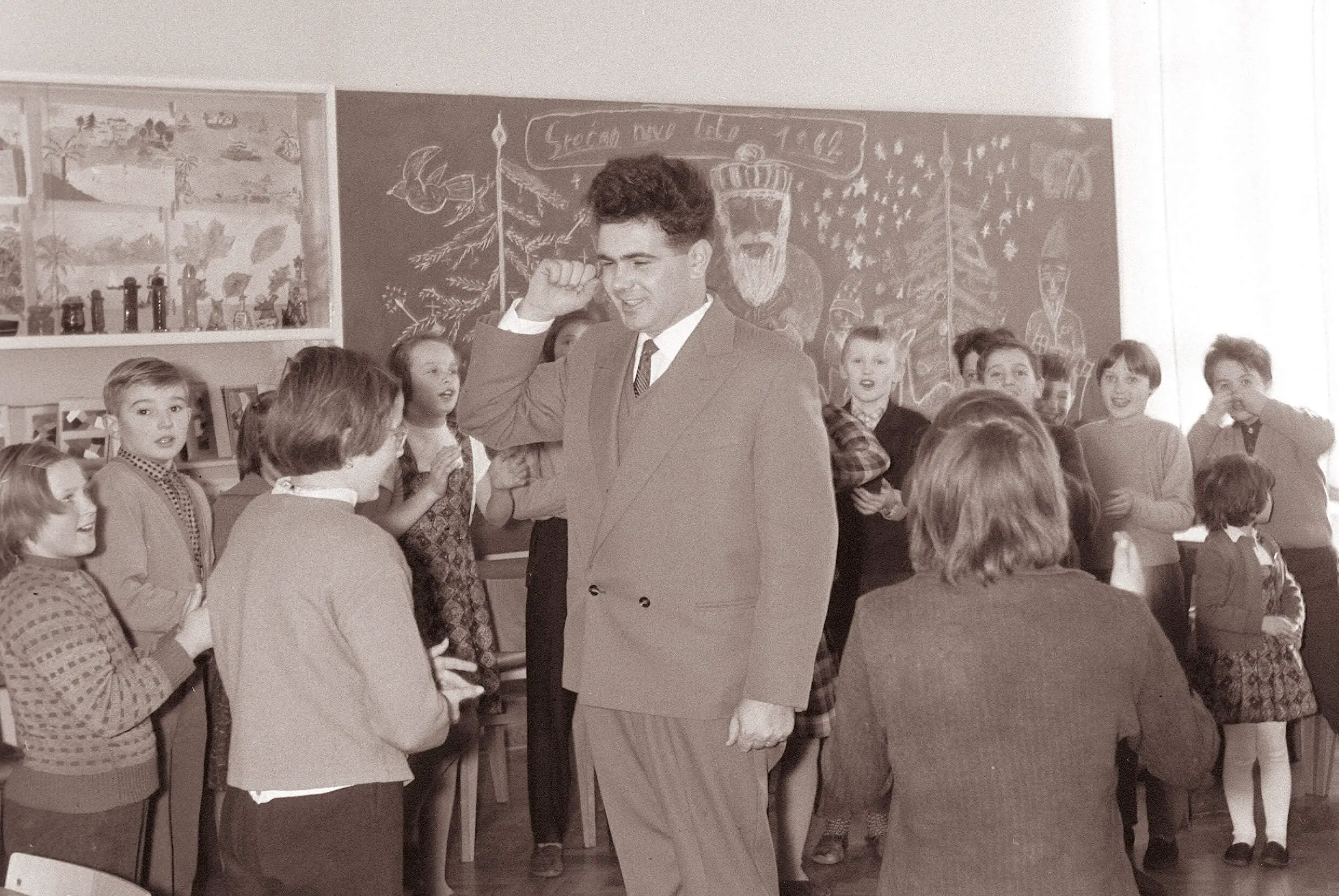
Dedek Mraz at OŠ Franc Rozman - Stane, 1961; Photo: Danilo Škofič
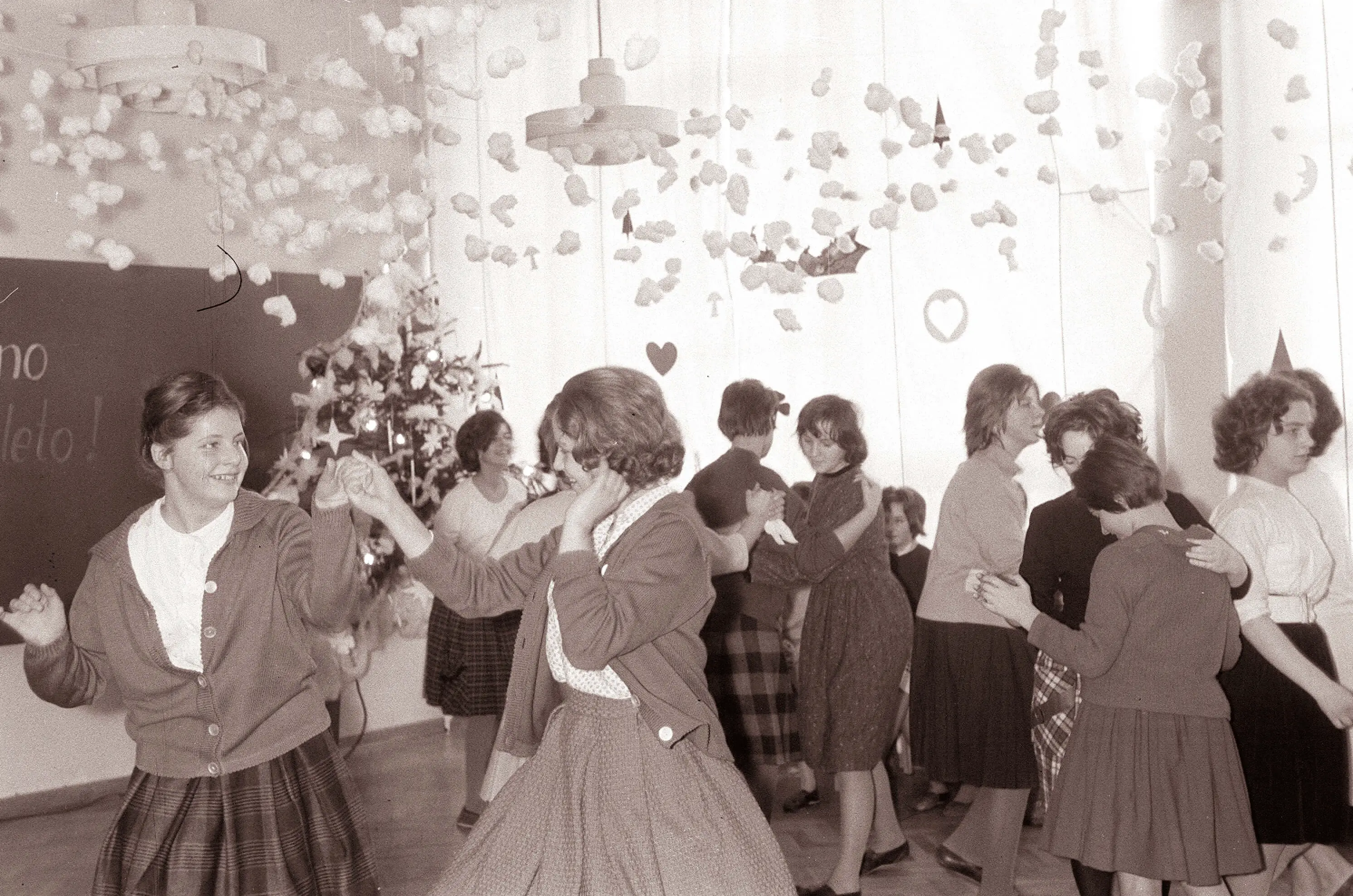
Dedek Mraz at OŠ Franc Rozman - Stane, 1961; Photo: Danilo Škofič
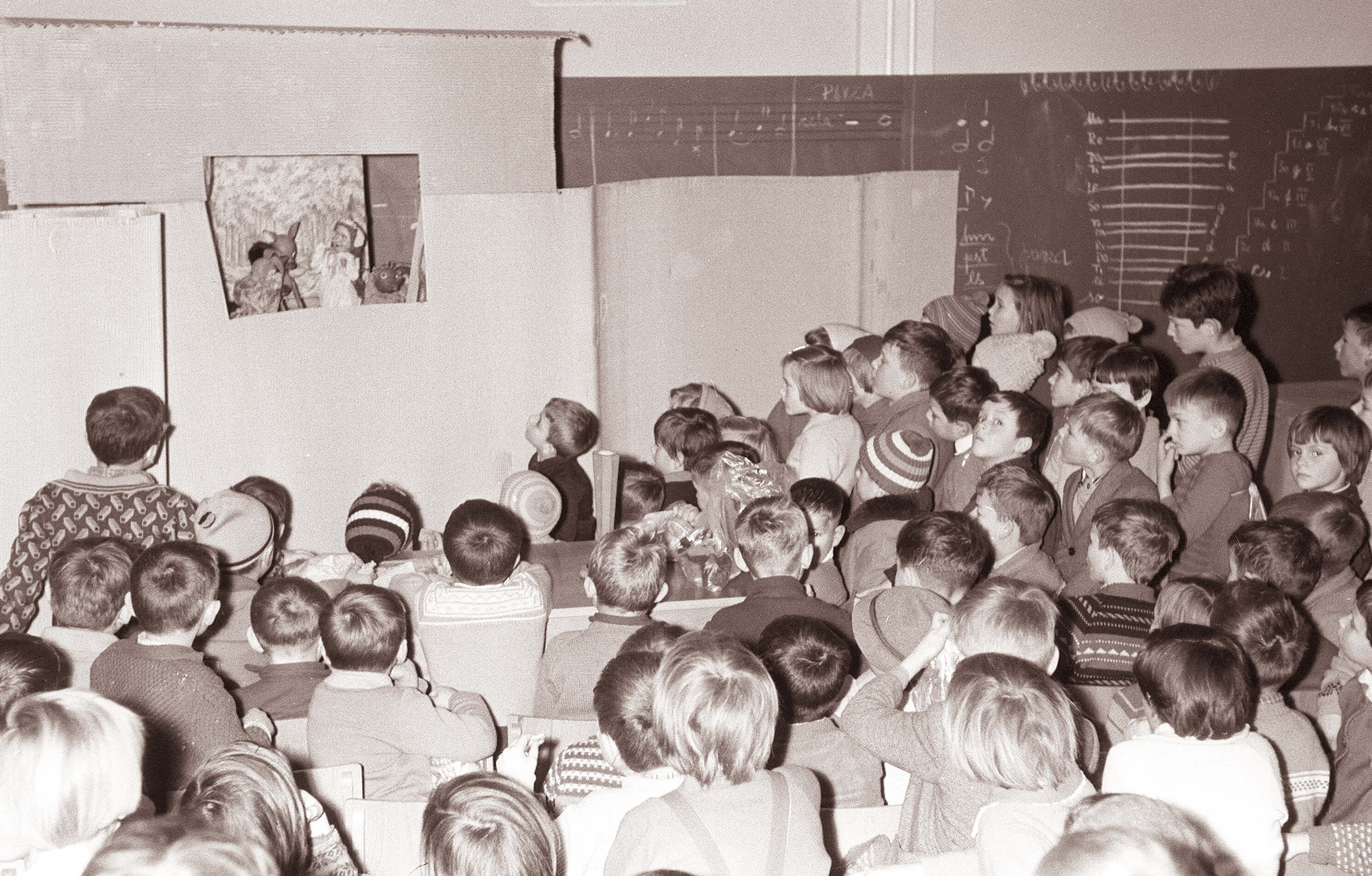
Dedek Mraz at OŠ Franc Rozman - Stane, 1961; Photo: Danilo Škofič
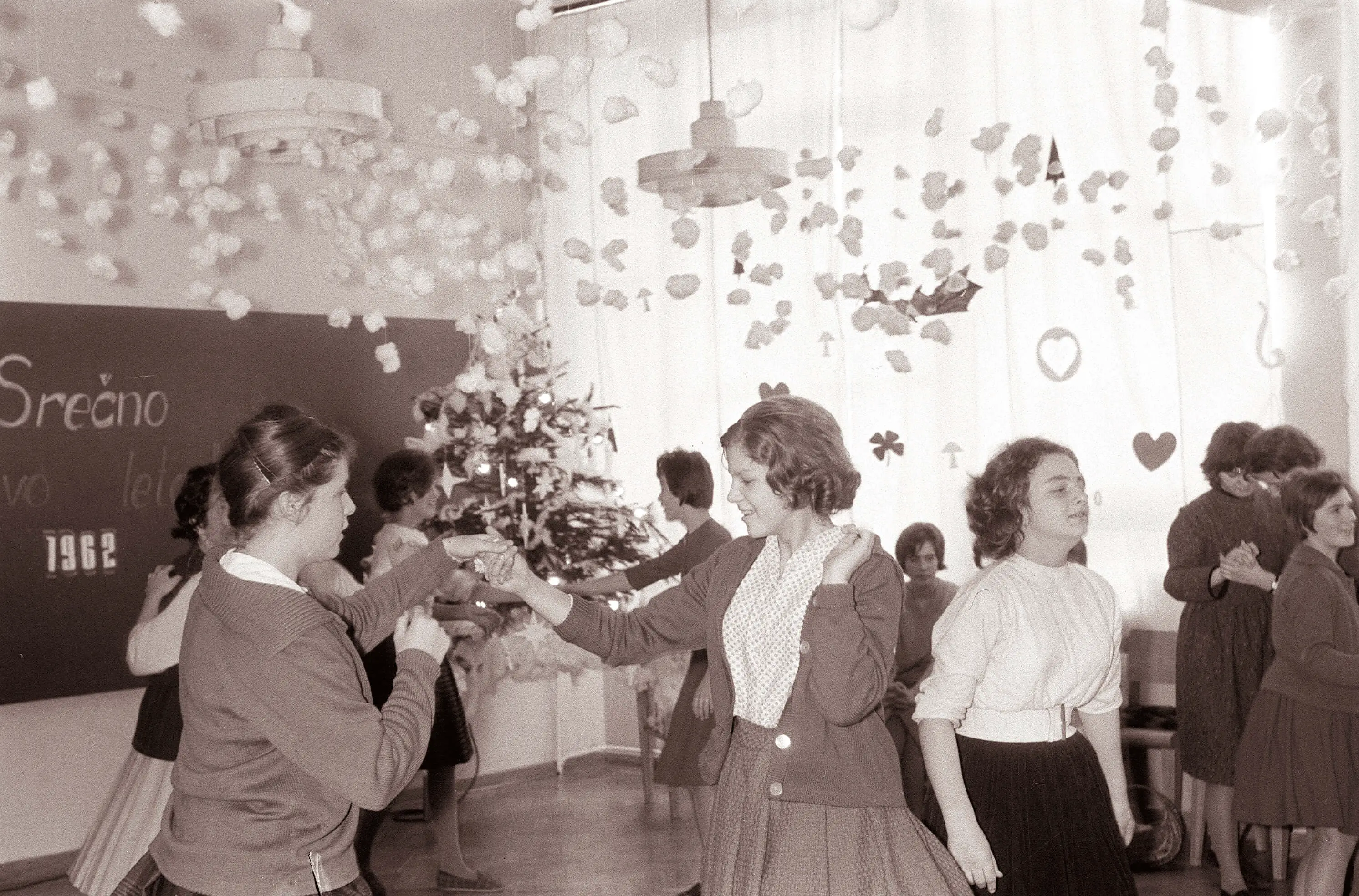
Dedek Mraz at OŠ Franc Rozman - Stane, 1961; Photo: Danilo Škofič

Dedek Mraz at OŠ Franc Rozman - Stane, 1961; Photo: Danilo Škofič
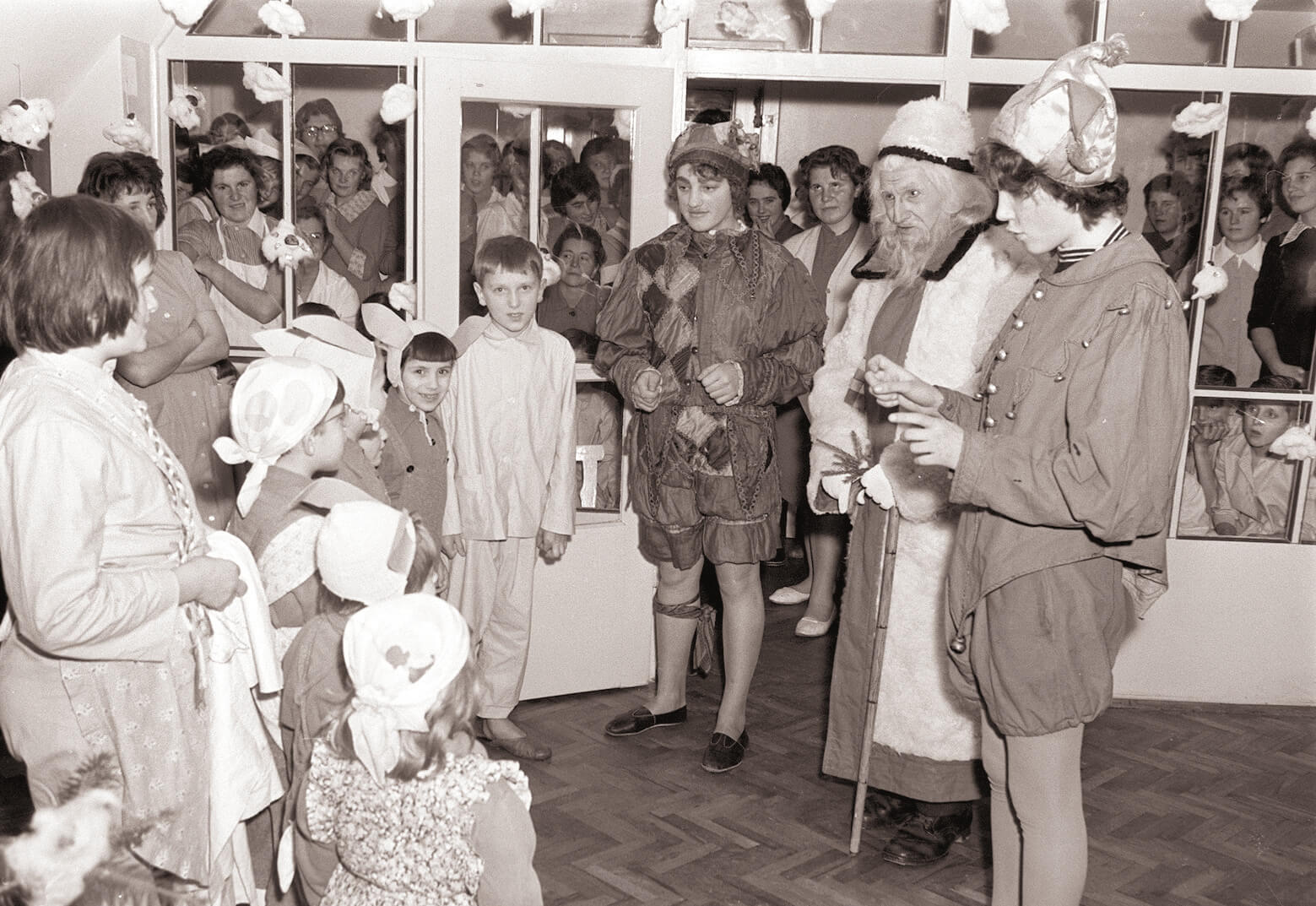
Dedek Mraz at pediatric hospital in Maribor, 1959
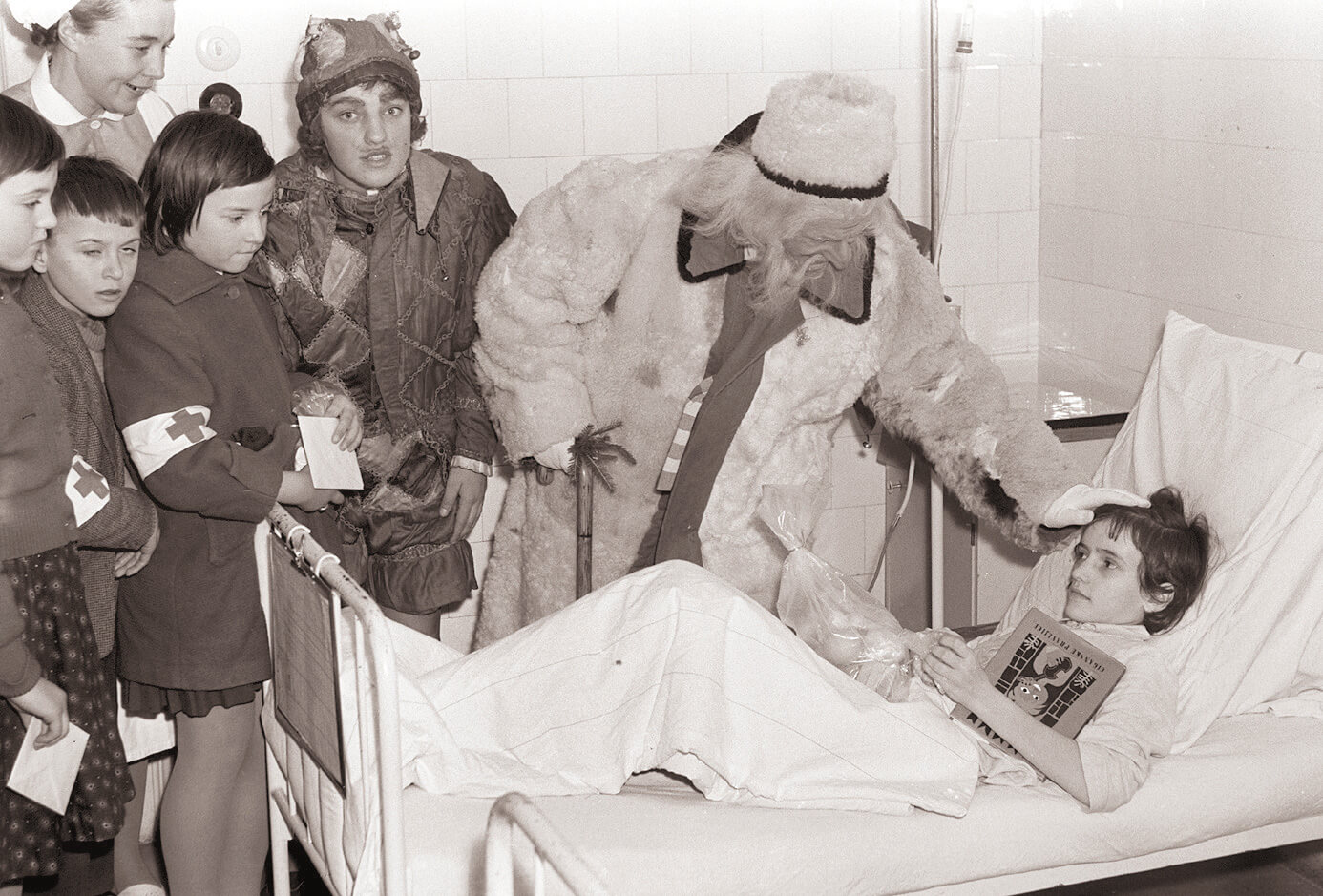
Dedek Mraz at pediatric hospital in Maribor, 1959
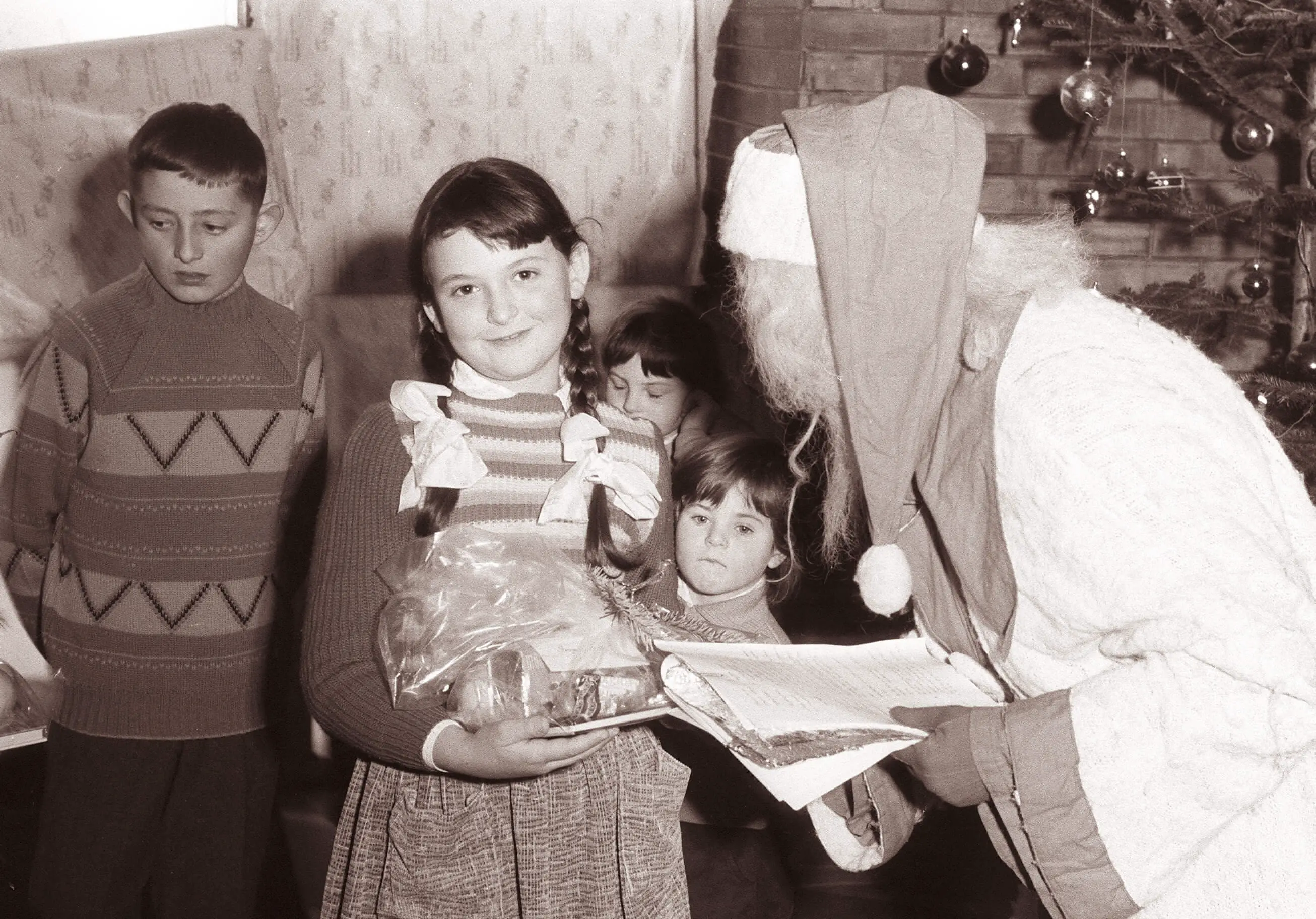
Dedek Mraz, location unknown, 1961, Photo: Jože Gal
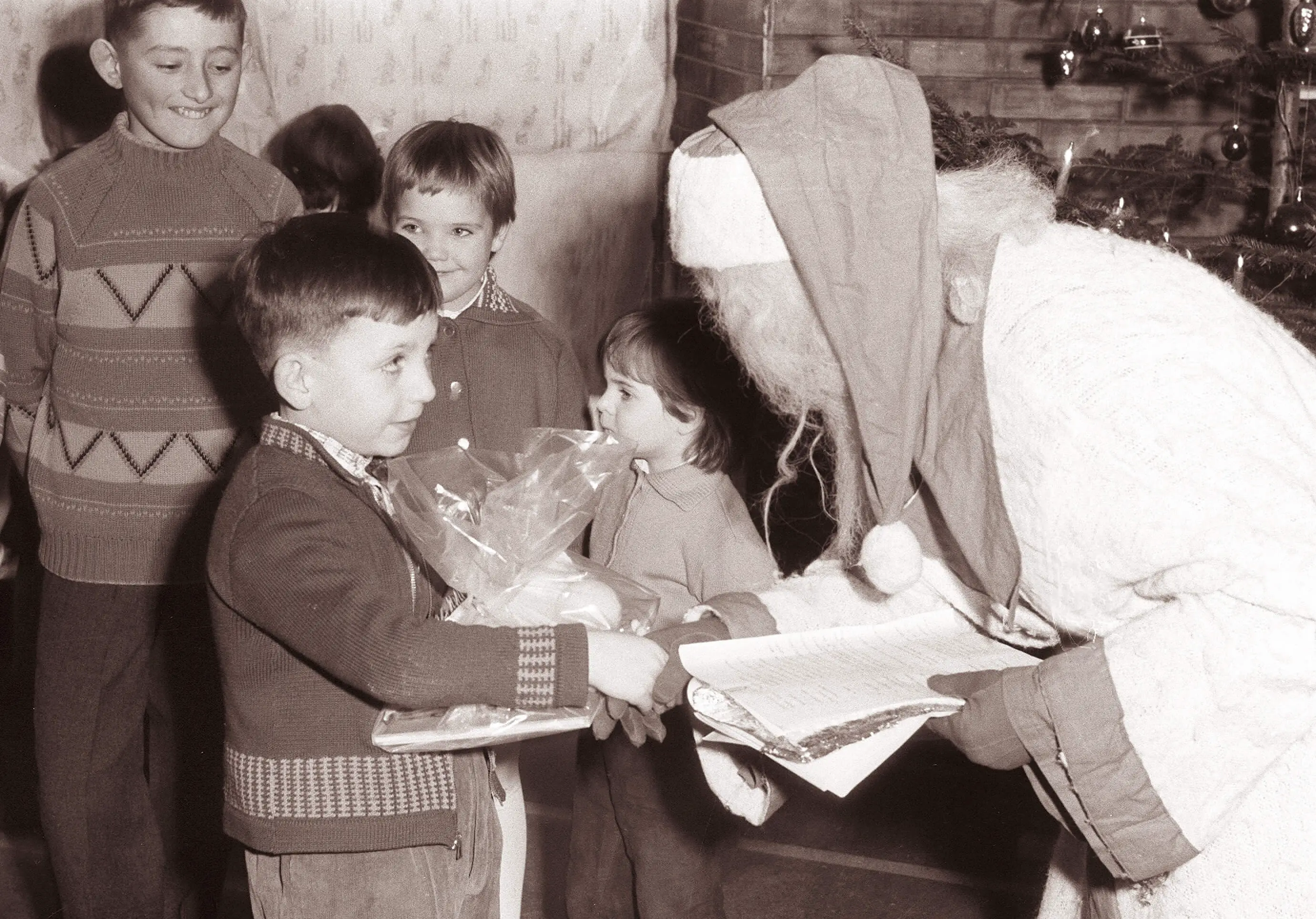
Dedek Mraz, location unknown, 1961, Photo: Jože Gal
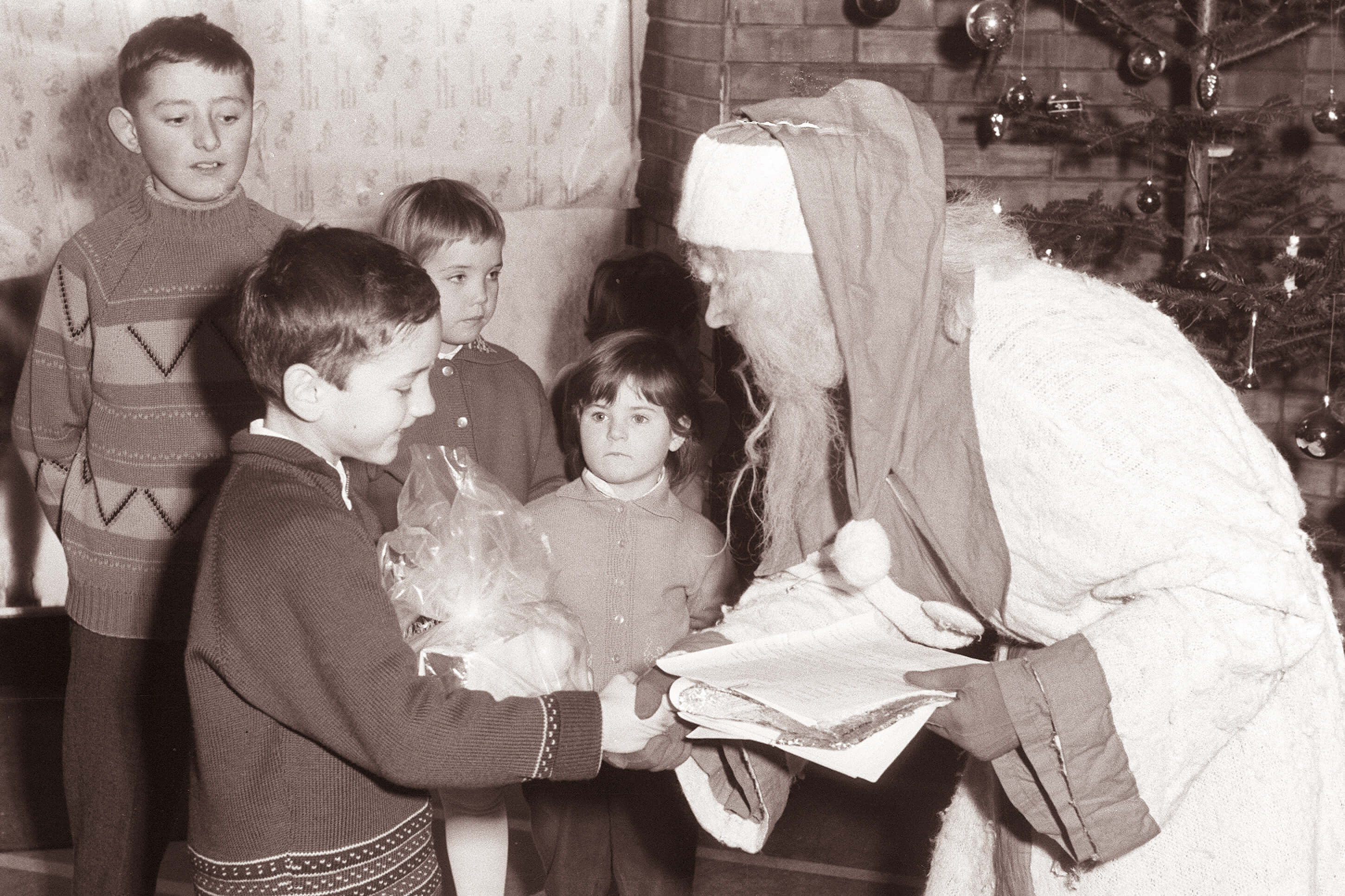
Dedek Mraz, location unknown, 1961, Photo: Jože Gal
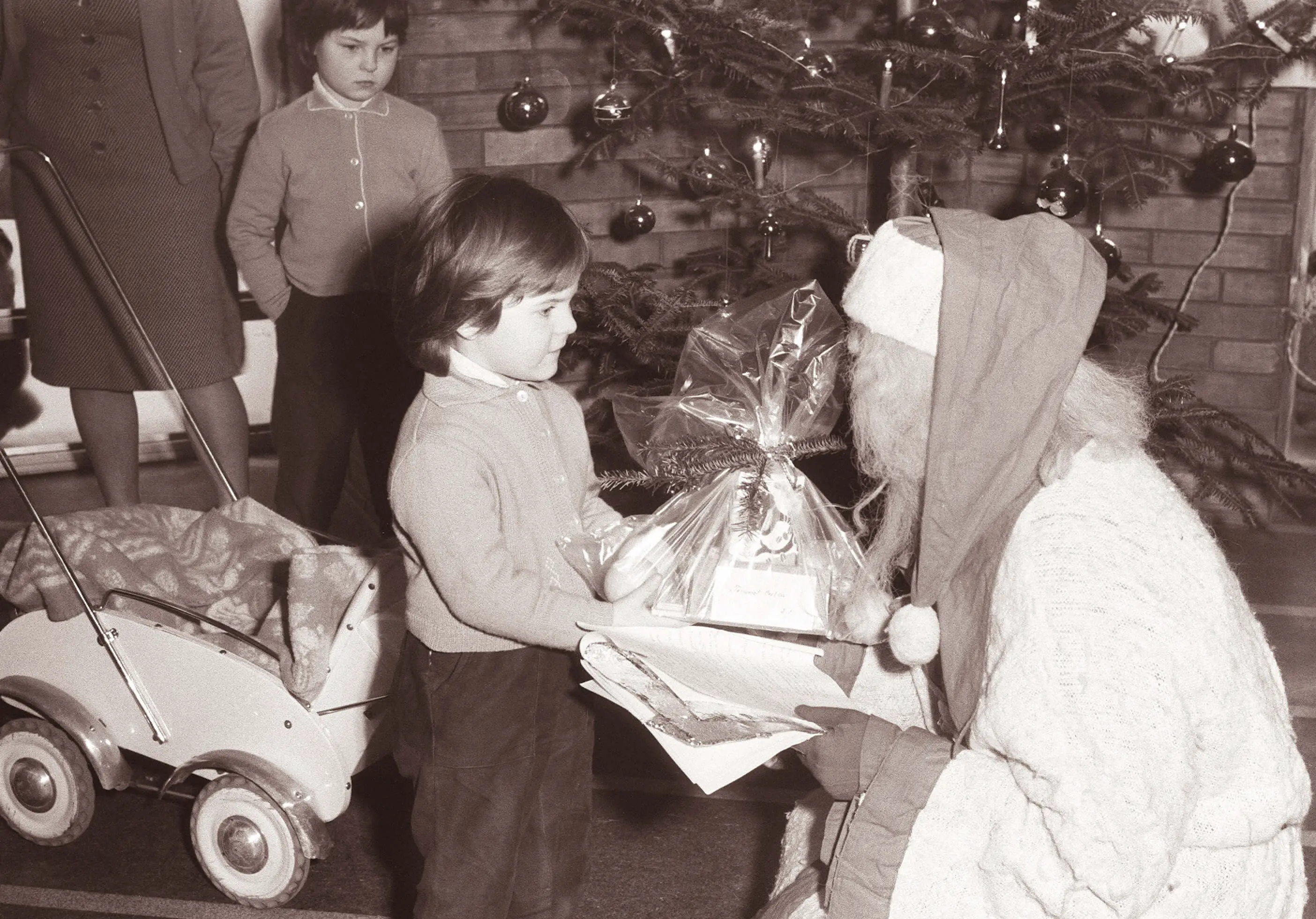
Dedek Mraz, location unknown, 1961, Photo: Jože Gal
STA, 27 November 2019 - The first stage of Slovenia's fastest public supercomputer was officially launched as part of the EuroHPC network of supercomputers at the University of Maribor on Wednesday.
The HPC RIVR is a prototype that will be used to develop and test solutions for the primary supercomputer system at the Institute of Information Sciences (IZUM), which is expected to be launched at the end of 2020.
The supercomputer in Maribor is one of EU's eight high-performance computing (HPC) centres, the others being located in Bulgaria's Sofia, Czech Republic's Ostrava, Finland's Kajaani, Italy's Bologna, Luxembourg's Bissen, Portugal's Minho and Spain's Barcelona.
The centres will provide support to the research community and industry in developing know-how and knowledge applications in medicine, advanced materials and climate change combat.
The prototype stage launched today, called Maister after the WWI general Rudolf Maister, has 4,256 processor cores and a capacity of 244 TeraFLOPS.
The final supercomputer, called Vega after the 18th century mathematician Jurij Vega, will have a capacity of 10 PetaFLOPS and over 100,000 processor cores with an added field of 600,000 GPU cores once it is built at the Institute of Information Science (IZUM).
If it was launched today, Vega would rank 20th among the world's most powerful supercomputers, but by the end of next year it is expected to place around 40th place, according to Miralem Hadžiselimović, vice-chancellor of the University of Maribor.
The project is coordinated by the University of Maribor, but all public institutions from the Slovenian national supercomputing network (SLING) are involved.
The entire project, valued at EUR 20 million, is mostly funded by the EU (80%), while the Ministry of Education, Science and Sport will chip in the rest.
University of Maribor chancellor Zdravko Kavčič said the project was very important for the entire country. "It puts not just universities and research institutions but the entire corporate sector in a new role where it is capable of competing in Europe and globally with own know-how," he said.




